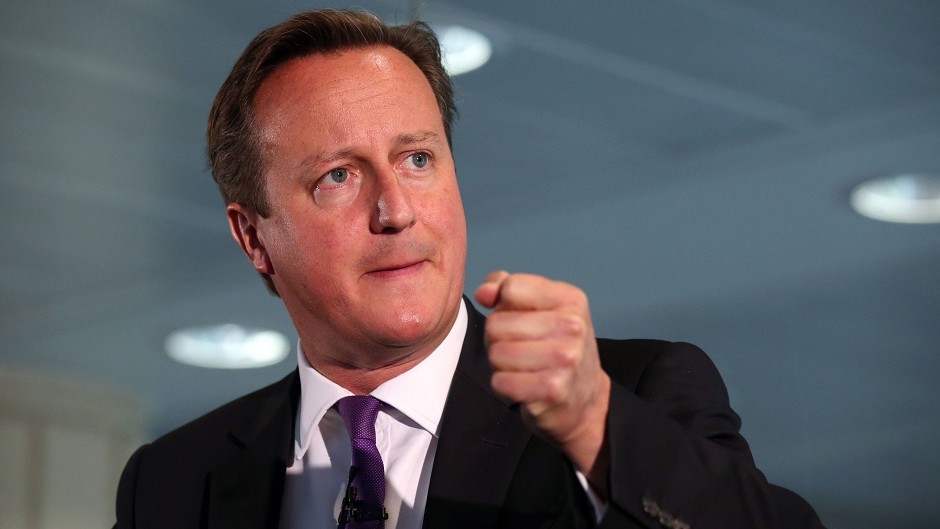Prime Minister David Cameron became embroiled in a fresh constitutional row within hours of Scots rejecting independence yesterday.
He moved to draw a line under the battle over Scotland’s future, saying the historic referendum result represented the “settled will” of the people and had settled the issue “for a generation”.
But his pre-vote “vow” to hand major new powers to Holyrood was immediately thrown into doubt as he linked the new devolution to resolving the age-old West Lothian question.
The Conservative leader said the question of Scottish MPs being banned from English-only votes at Westminster required “a decisive answer”.
He added that “all this must take place in tandem with, and at the same pace as, the settlement for Scotland”.
Commentators said there was little chance that such a long-standing constitutional issue could be addressed within the accelerated timetable set out by former prime minister Gordon Brown for new powers to Scotland, with draft legislation due in January.
The plan was dismissed by Labour, whose chances of forming a majority government at Westminster may depend on Scottish votes, as a “knee-jerk reaction” driven “more by politics than by a considered judgement of the needs of the constitution”.
Leader Ed Miliband later announced an alternative proposal, calling for a constitutional convention to address demands for wider devolution across the country.
However, Conservative MPs made clear they were not prepared to tolerate a situation where Scottish MPs could vote on the level of income tax for England while income tax in Scotland was decided in Holyrood.
Mr Cameron, who could have been forced to resign if there was a Yes vote in Scotland, welcomed the final verdict.
“The people of Scotland have spoken and it is a clear result,” he said.
“They have kept our country of four nations together and like millions of other people I am delighted.”
He added: “Now the debate has been settled for a generation, or as Alex Salmond has said: ‘perhaps for a lifetime’,” he said.
“So there can be no disputes, no re-runs, we have heard the will of the Scottish people.”
The prime minister underlined his commitment to greater devolution of power to Scotland with an announcement that Glasgow’s Commonwealth Games supremo, Lord Smith of Kelvin, would oversee the process.
However, his promise of reform at Westminster to ensure that “the millions of voices of England” were also heard, opened up the prospect of a prolonged new political struggle all the way to May’s UK election and beyond.
Calling for a new convention, Mr Miliband said: “We need a response that matches the scale of this moment. That starts with delivering on our promise of further powers to Scotland.
“But other people in Britain, including England, now deserve the chance to shape their own futures with a dynamic devolution settlement.”
He added: “What is needed is a comprehensive and credible process involving citizens, to take forward a debate about how we are governed”.
Meanwhile, former Tory cabinet minister John Redwood said: “What we first of all need to ensure is that all these matters are settled in England by English MPs without the help and advice of their Scottish colleagues.”
